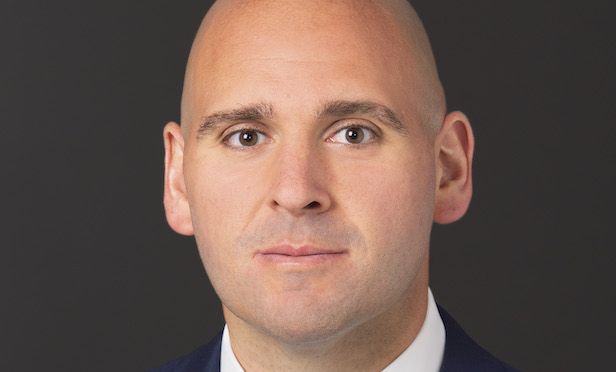 David Friedman, regional director of commercial real estate, New York metro market, TD Bank
David Friedman, regional director of commercial real estate, New York metro market, TD Bank
NEW YORK CITY—“We're still in the early stages of co-working, although the narrative has definitely been ramped up during the last 12 to 24 months,” says David Friedman, TD Bank's regional director of commercial real estate finance for the New York metro market.
Co-working
“From a financing perspective, I think the traditional, commercial bank balance sheet market is still in the early innings of understanding the elements and the business plans for a lot of these co-working companies. You rarely have seen most of the traditional balance sheet banks lever up on those types of buildings,” says Friedman.
He says as a rule of thumb most banks limit their risk to that segment by financing buildings that have a co-working component anywhere between 25% to 30% of the building. That's currently where TD Bank is in terms of its strategy and comfort level with co-working tenants.
Friedman explains how lenders in general handle risks in office buildings, lending on cash flow positive assets. Most office buildings are multi-tenanted. If one tenant doesn't have the ability to pay rent, the cash flow would not be significantly impaired due to other tenants that have a better credit profile.
The CRE finance director provides a hypothetical of one tenant paying $100 per square foot. Just say this tenant doesn't have the best financial wherewithal and carries a potential to stop paying rent. TD Bank would use a discount to that $100 per square foot, saying in the worst case scenario that tenant leaves and a new tenant comes in and pays $50 per square foot. “We would assess a probability to that cash flow and then would effectively reduce how much we could potentially lend on the asset as a result of that.”
With a multi-use, multi-tenant building, the bank has the granularity to see through what is the ultimate risk of a single tenant.
High-End Luxury Condominiums
Friedman says the high-end luxury condo market is definitely softening and continues to soften from a year ago. He points to a slowdown of international buyers including from China and Russia, and an increase in supply. “You have a lot more options from which to choose than you did 36, 48 or even 60 months ago,” he notes. “Potential buyers at those specific price points are taking their time to really make the selection that's best for them and where they want to be.”
As for bank loans for these products?
“There's no question there's been a slowdown in the financings that have been helping construct these larger towers from a traditional bank balance sheet perspective from someone like TD,” Friedman comments. “We've been on pause for condo development for quite some time.” He clarifies that TD is not a large lender for condominium developments.
“The loans that are getting done today, from the construction standpoint are probably more in the nonbank arena than the traditional B of A or Wells Fargo,” he says.
Tech Tenants
Friedman applauds New York City's economic diversification including its growth of the tech industry. For many years, financial services and law firms dominated the office market. Now, with a greater variety of businesses, lenders looking at office assets no longer have mainly just two or three users but multiple possible users.
However, with tech companies, Friedman cautions there could be a fair amount of consolidation. “You can have one tenant buying another and they ultimately don't need the same amount of square footage,” he says. “When you look at financing with a tech heavy dominance in a building, just understand you know what that would look like if a consolidation were to happen.”
© 2025 ALM Global, LLC, All Rights Reserved. Request academic re-use from www.copyright.com. All other uses, submit a request to [email protected]. For more information visit Asset & Logo Licensing.








